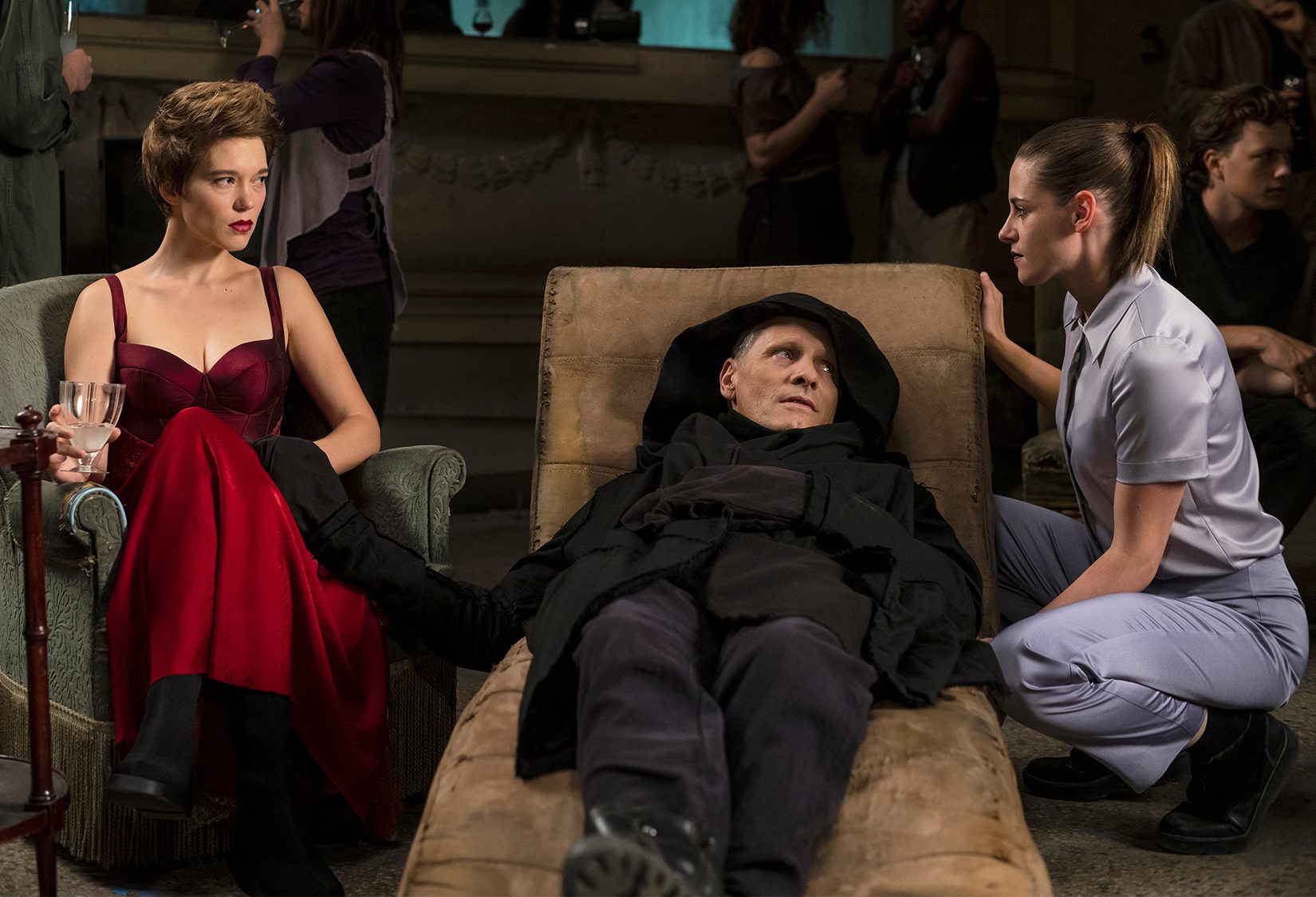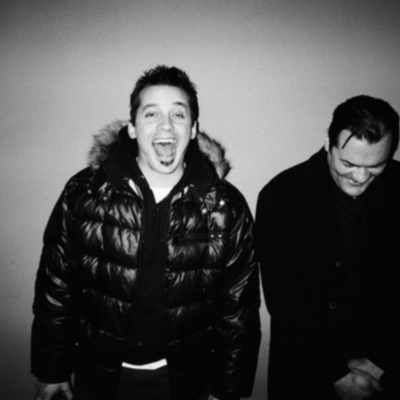For fans of writer/director David Cronenberg’s films, his newest, Crimes of the Future, is cause for celebration. It’s 100 percent unadulterated Cronenberg, and marks a return to the sub-genre he essentially invented: body horror—unsettling excursions into human biology in revolt against itself. And for those unversed in Cronenberg, this will be a thought-provoking, observant, shocking, funny, and rewarding experience.
Set in a run-down future, the film focuses on performance artists whose specialty is physically altering themselves in front of audiences. Among them, Saul Tenser (Viggo Mortensen) develops entirely new organs that his performing partner Caprice (Léa Seydoux) surgically removes. As Tenser prepares for more groundbreaking shows, he works undercover with a detective in the NVU—New Vice Unit—seeking out a dangerous cult intent on developing a unique breed of human.
If all this sounds surreal, it is, in the best possible sense. Although it’s not a masterpiece, this is Cronenberg’s finest, most peculiarly inventive film since his excellent Existenz. It feels like it was made decades beyond 2022, or was designed for another, humanlike species. Cronenberg aficionados will recognize echoes of his great works here, including Videodrome, The Brood, and The Fly. As in those films, he eschews preachiness and didacticism in Crimes of the Future, in favor of pointed observation. That’s not to say it’s cold or nihilistic—it’s neither—just that he doesn’t lecture his audience: He imaginatively extrapolates on current trends in his own unique, intense, and wryly witty voice. His latest is loaded with dark comedy and is distinctly Cronenbergian with expressions like “best original organ,” or “designer cancer.” And, in his inimitable way, if there’s a place the audience might consider too shocking, Cronenberg immediately goes there.
Crimes of the Future is a refreshing reminder of how wonderful it is to see a gifted director allowed to express his personal vision without dull studio interference. The film is devoid of pandering, and never insults its audience’s intelligence, successfully commenting on everything from humankind’s adaptability to the most hideous environments, to the pretentious side of performance art—better still, it actually leaves you thinking.
The cast has no weak links. Mortensen eloquently physicalizes Tenser’s torturous occupation and its physiological hazards. Kristin Stewart is hilarious as jittery bureaucrat Timlin, a kind of surgical groupie, and Don McKellar is very good as her boss, Yevgeny Nourish. (Odd names like these are another Cronenberg hallmark.) Also outstanding are Nadia Litz and Tanaya Beatty as the dryly funny repairwomen Router and Berst.
The unsung hero of Crimes of the Future, though, is Cronenberg’s longtime production designer Carol Spier, whose contributions to his movies are incalculably important. For decades, Spier has ingeniously shown the unshowable, to borrow one of the director’s phrases. Her ability to give his highly abnormal worlds believable form is the stuff of genius.
Crimes of the Future will likely appall viewers with weak stomachs. But Cronenberg’s violence and sexuality possess a sensibility, and that makes all the difference. Unlike so many outstanding horror filmmakers who slid into making junk in their elder years, 79-year-old Cronenberg’s chops—no pun intended—are strong. He still really delivers.






